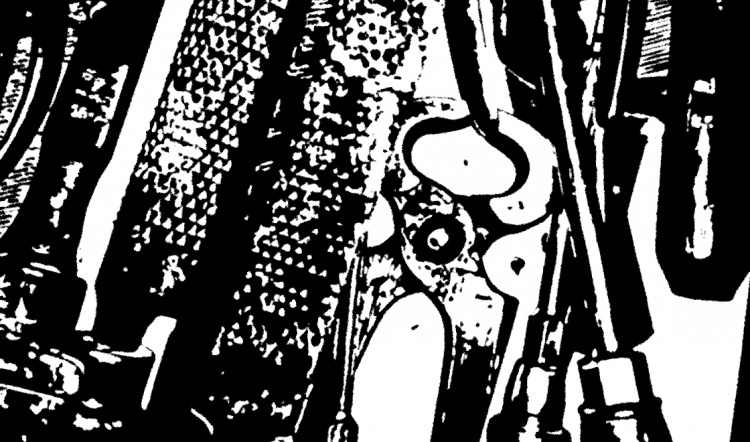Tools in the Toolbox
If you like to read, you like words. If you write, you love them.
The big question to ask is how well do you really know them? Sure, you might know whether they are nouns, pronouns, verbs, whatever. You know how to spell them. You know how to conjugate them, but do you really know them?
The English language is a beautiful mess. We’ve gathered words like bits of wool from all over the world and have added them to our lexicons over the centuries. Some bold writers even take it upon themselves to create entirely new words when existing ones won’t do.
Words can lend strength and expression and, in many circumstances, only a very specific word will do. Words have weight and form carved from centuries of use, misuse, and disuse and some morph in strange and bizarre ways, especially when combined with other words.
We’re going to take a brief tour of my process when considering certain words. When I use certain words, I mean words of particular import to a thing, be it a title or an archetype or an ability. What I look for varies based upon what tool I need for a given job. A carpenter neither turns to a hammer or a saw for all their labors; though they are often used, sometimes a pair of pliers is necessary to bend a piece of metal in a certain way, to present a jagged truth, or to prevent anyone from hurting themselves on a sharp edge. Words can temper steel. Make a truth a lie. They can, most of all, present a perception of the world, be it the omniscient vantage of the author or the precarious positions of one of their characters. Through force of will and imagination, one can transcend meaning and imprint a new meaning upon a word, be it common or uncommon. You must be sincere in your creation, lest it fall apart, a frangible, piteous thing.
I look for words that are provocative, suggestive. Somestimes common and full of portent, sometimes, little used. We’re talking singular words presently. Combining three words gives you nine combinations, some nonsensical, certainly, but word order has meaning as well, and is beyond today’s scope. Sometimes, a writer is gifted with a word. Just the right thing shall float down from the aether with a golden bow upon it. More likely than not, however, the word, like the Dude, abides. It is waiting for you somewhere in a mist-laden primordial forest, impish grin intact. It awaits you in a historical work. It awaits you in an article. The right word always awaits you. Sometimes, you can’t find it right away. In those moments, I mark out the territory in my work with a tag from my old HTML days and bracket the thing, e.g.<insert cool word here>, and proceed apace. Upon revisiting the work in subsequent drafts, I am appalled at my past audacity for leaving this thing to me and set to work (if I haven’t been obsessing and searching for the proper word in those reflective pauses between the physical acts of writing.
Quite often, the word (or phrase) requires brainpower beyond the keyboard and I duck into dictionaries and books and grab notecards and write out a number of words while I seek out the word that will give me what I want and then ascertain whether it’s been used a million times elsewhere. The right word might seem right in the moment. At the very least, it gives a working place of reference and a compass to guide towards in the dark. Sometimes, the right word surfaces right away. Sometimes one is close enough to give the project a good start. A good title, a good word, a proper turn of phrase can often help inform me right away of the work’s intent. It is like egg drop soup. If the egg drop soup is good in a Chinese restaurant, all the food is likely wonderful. If a simple thing cannot be properly attended to as word choice, how can we possibly trust the integrity, the truth, of a piece, be it fiction or otherwise?
Reflect upon this as you read your works and write your words.
Until next time, I bid you, dear reader, adieu.
